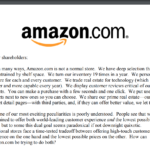Photo by Lukas from Pexels
As a product manager, conducting surveys is an essential part of the job. Surveys allow us to gather valuable feedback and insights from our target audience, which in turn helps us make informed decisions about our product development and strategy.
Surveys provide us with an understanding of what our customers want and need. By asking the right questions, we can identify pain points, assess customer satisfaction, and gather information about their preferences and habits. This information is crucial for us to be able to improve our product and create a better user experience.
Surveys also help us validate our product ideas and hypotheses. By conducting market research, we can determine if there is a demand for our product and if it is feasible to bring it to market. This is especially important for startups and small businesses, as it helps us avoid wasting time and resources on unviable products.
When building a product, you need to find out if it is a real problem for users and how they solve it today. Surveys are a great way to get those answers quickly, with a low budget, and the most convenient for you and your users.
Here are some key advantages of surveys that a product person can derive.
Users-centric approach
You are building products on behalf of your users. However, you are not always the user. It’s super important to understand the problem in users’ terms before trying to solve it. Reaching out to the right set of users and getting a volume of people to answer your surveys is the first good step as a product person.
Facts-based decisions rather than opinion based
You may have your theory and opinions about users’ problems. The more you get experience, you tend to have stronger opinions and use them to decide for the users. Having an open mind in knowing what users want is critical. Surveys are great ways to stay open-minded and let the real feedback pour in. Decisions based on facts and data will have a higher chance of winning over an individual opinion.
The scalable & time-saving model while targeting a huge user base
The ideal way to understand the user is by talking to them face to face. However, this brings many limitations regarding your and users’ time. And when you want to get input from a huge set of people. a face-to-face meeting is not a scalable model. Short surveys reaching out to multiple users is a great time-saving option.
The convenience – Free and easy to set up
A lot of digital survey tools are free and easy to set up. Google Forms, Microsoft forms, SurveyMonkey, Typeform, and more. They provide an intuitive user experience that most people could find easy to fill in. Setting up a survey is just a matter of creating a form with well-crafted short questions and sharing the form link in an email, text, or social media post.
Automated summarised reports out of user responses
Almost every listed survey tool provides an aggregated summary view to instantly see what users say. Piecharts & bar charts could be extracted right away to derive a decision.
An excellent feedback tool for continuous improvement
After almost every technical support call, you would have asked to fill out a feedback form to know how good the support was. The same applies to many areas. Requesting immediate feedback makes the user feel valued and could significantly improve your deliverable next time.
Best practices around the surveys
- Keep it short – Number of questions and time taken to answer them.
- Set the proper context around your survey to influence the user to participate
- Reach out to the right set of users to avoid biases in your survey results
- Ask questions that provide insights to better solve the user’s problem, and avoid questions leading to what YOU want to hear and conclude. Give enough room for users to disagree about the problem
- Provide a comment/suggestion field for open-ended input. Let users explain the problem in their own words.
- Avoid asking for personal info if it’s not required (name, email, phone, address). People care about privacy, which will stop them from filling out your survey.
In conclusion, surveys are a crucial tool for product managers. They provide us with valuable insights and help us make informed decisions about our product development and strategy. By conducting regular surveys and engaging with our customers, we can improve our product and build strong relationships with our target audience.
Here is a survey that I would like you to fill in to help me improve this blog.


Mangesh is Product Leader
Full Bio here – https://mangesh.bhamre.in











